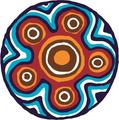Year 3 Term 2 Overviews

Wominjeka!
Welcome back to a busy and exciting term. The term has begun with re-establishing the routines and expectations for Year 3 students, as well as building on a sense of community in each classroom. We are continuing to work together to develop strong relationships with your child to understand and support their social, emotional and academic learning strengths and needs. We appreciate the support you are giving your children with their nightly reading and diary entries, as well as assisting them to practise their goals at home.
Reading
In Reading, students are exploring non-fiction text structure and features. This includes the main idea, supporting detail, vocabulary and text features. They will have opportunities to dig deep into weekly mentor texts, guided reading and reciprocal teaching texts and examples of non-fiction texts from our school and class libraries. They will learn, identify and extract information using the main idea, supporting detail, vocabulary and text features.
Writing
In Writing, students are continuing to develop their SMART spelling routine, investigating and practising the weekly spelling pattern. They are writing a range of information texts, including an autobiography and information report. These will build their skills using the writing process, (plan, draft, revise, edit and publish). Students are using their writer’s notebooks to collect and develop seed ideas and research questions to guide their writing.
MATHS
In Maths, students are developing their knowledge of understanding how addition and subtraction relate. We have been exploring this through number bonds and fact families. Students will investigate and create equations and show how addition and subtraction are the inverse of one another.
Students will be working on money and financial maths where they will represent money values in multiple ways and count the change required for simple transactions. Students will then explore 2D shapes whilst they identify and describe flips, slides and turns found in the natural and built environment. Later in the term, students will be creating clear and concise questions that help them to collect and represent data accurately. They will also investigate and describe possible outcomes and events as ‘likely’ or ‘unlikely’ and identify some events as ‘certain’ or ‘impossible’ and explain their reasoning.
Multiplicative thinking is continuing to be taught to students throughout the duration of the year as it is considered ‘a big idea’ in years 3 and 4. They are engaging in maths games to practise strategies during regular Number Sense Workshops in order to deepen recall of multiplication facts of two, three, five, ten and beyond and their related division facts. Students are continuing to build their Maths reasoning through weekly opportunities to solve real life worded maths problems using efficient and creative mental, written and representational strategies, such as drawing diagrams and tables and making models and writing number sentences (equations).
SEL
Throughout Term 2 our Social and Emotional learning will focus on understanding the value of a range of perspectives and learning a variety of strategies and skills for effectively solving problems with their peers.
INQUIRY
Our Unit of Inquiry this term is around the statement “Earth has small systems within it, but is part of a larger solar system”. We will be exploring cycles we have on earth such as day and night and the seasons. We will also be investigating our place in the solar system. This will also relate to the excursion to Scienceworks in Week 4.
Year 3 A,B,C,D,G: 7th May
Year 3 E,F,H,I,J: 9th May
General Reminders:
- Please ensure that your child is at school and ready to learn at 8:40am.
- Please check Compass daily, as these will be the main portals that we (the teachers) and the school will communicate information to you. Compass is also the place where you will be able to access your child’s goals and achievements.
These will be released every five weeks and will tell you what your child has achieved in Reading, Writing, Numeracy and Inquiry/Social, as well as their next steps (goals).
Reading goal during this current cycle is for ALL students to: build stamina for reading by continuing regular routines outside of the classroom. Students are expected to read at home at least 4-5 times each week and independently write purposeful responses in their green home reading diary after each home reading session.
Students will transport books from school to home and back each day in their satchels. Each morning, readers will be exchanged from the take home reader boxes in classrooms. Your child's teacher will have a day in which all Green Home Reading Diaries need to be handed in so they can view, record and provide feedback on students’ nightly reading.
Learning apps, Wushka, IXL and Google Classroom are being accessed by students. The safest place for login details is in Green Home Reading Diaries and we recommend that families take a pic of their child’s login details and store them on phones as a backup.
